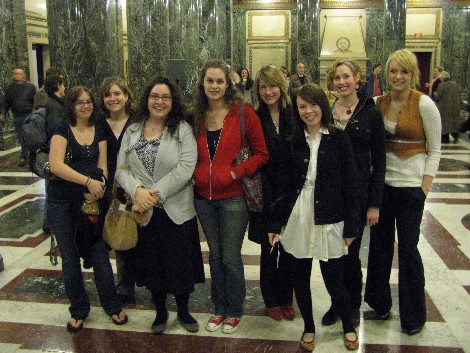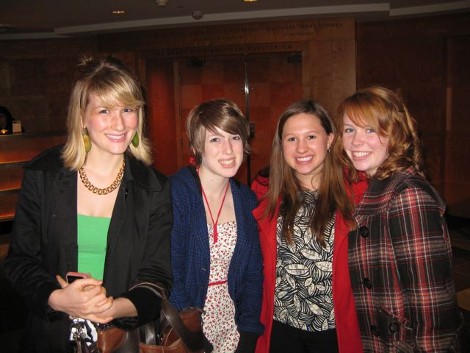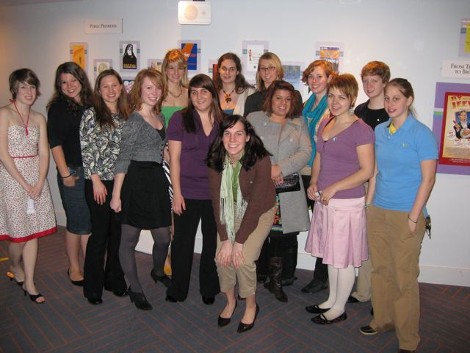As part of the Drue Heinz Lecture Series, Marjane Satrapi, author and illustrator of the acclaimed comic book Persepolis, came to Pittsburgh last night at the Carnegie Music Hall. Ten scholars, along with Dr. Lenz, sat in during Satrapi’s lecture and learned new things about the author and her perceptions of her work.
An important opinion that Satrapi pointed out was that she most certainly did not want her works to be called “graphic novels”. She said that they should be called what they are–comic books. She realizes that most people view comic books as for children and for “retarded adults,” as she herself put it. But the term graphic novel, to her, recalls such novels as Lady Chatterly’s Lover.
Satrapi’s most important point in her lecture was that she wrote the comic book for others to simply understand through one perspective the vastness of the Iranian, and even Middle Eastern, culture. She wanted to point out that she has more in common with Americans than she does with the Mullahs of her homeland and that such fanatics have more in common with previous American government than they do with their own people.
When asked about her favorite part of Pittsburgh during the question and answer section, Satrapi replied that in downtown Pittsburgh she was delighted to find a bar in which she could smoke. That, she said, was the mark of civilization. Another person asked her about her favorite music to which she replied that rock was her favorite but she couldn’t stand R&B.
Overall, Satrapi brought wit and depth, the key aspects of her comic books, pairing the horrifying with the comical, so, as she saids, to ward off cynicism. Her lecture was both humorous and serious, drawing on the politics of Iran and America but also speaking of her childhood and life.







